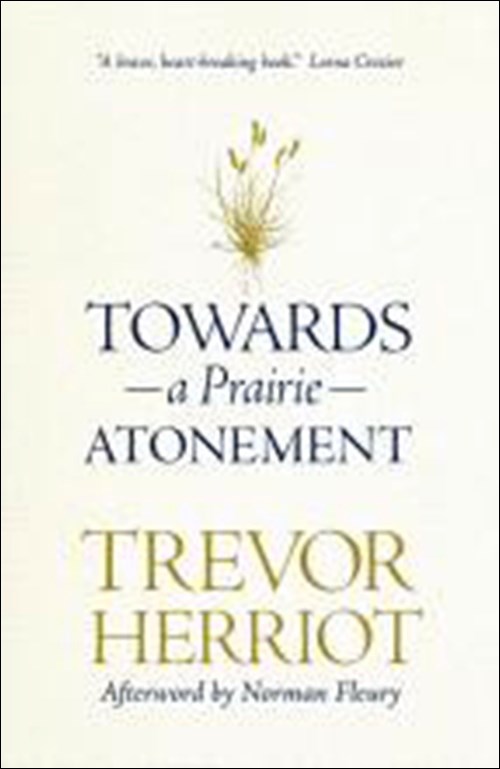By Trevor Herriot
Published by University of Regina Press
$22.95 ISBN 978-0-88977-454-4
For the Métis, who lived on the Canadian prairies for centuries, land was everything. They hunted on it, sustained themselves on it, fought for it and died for it. In Towards a Prairie Atonement, naturalist Trevor Herriot’s same reverence for the land is reflected in the deep spiritual undertones embedded in his narrative.
Enamoured with both the prairie and its inhabitants, Herriot pays particular attention to the birds and trees, as is his naturalist inclination. He argues that if man does not take care of the land, nature will exact its revenge, as it did in the raging dustbowl of the Dirty Thirties. If you sit very quietly in the outdoors, he says, you can hear the land moaning its loss.
Herriot has a flair for playing with descriptive language, such as “fingers of grassland around bowls of forest” and “men and women as hardy as poplar trees.” He points out that some of our English words, such as coulee, originated from Michif, the Métis language rooted in a mixture of Cree and French.
Herriot draws heavily on Métis Elder Norman Fleury to guide him through Métis history on the plains, especially the settlement at Ste. Madeleine on the Qu’Appelle River immediately east of the Saskatchewan-Manitoba border, where Métis settlers were evicted and their homes burned so their land could be used as a community pasture.
Herriot`s narrative provides a revised history lesson, saying colonialism “is an utterly unreliable narrator.” He views the clash between Métis leader Cuthbert Grant and Selkirk settlement governor Robert Semple at the Battle of Seven Oaks as a conflict between old and new cultures.
The Métis were not included in the numbered treaties with First Nation people. They became even more isolated when the dominion land surveyors divided their land. Herriot disparagingly says the prairies were “drawn, quartered and privatized into little squares.”
The end of the buffalo, Herriot notes, marked the demise of both Métis and First Nation traditional ways of life. Wondering what might have happened if greed had not doomed the great bison of the plains, he speculates there would have been “No reserves, no Indian agents, no pass laws and no residential schools.”
Herriot’s account is heartbreaking, yet hopeful, believing the environment can still be restored, perhaps not to its full vigour but at least to a sustainable level. .
After analyzing the conflict between public and private ownership, Herriot poses a third option – to follow the Métis tradition of sharing. Everyone would share the use of the land, but would also share the responsibility for maintaining its ecology. After all, according to Herriot’s analogy, we all live in the same tent, held down by the same peg, so sharing is the best solution. This is Herriot’s proposal. Will it work? We’ll never know unless we try.
This book is available at your local bookstore or from www.skbooks.com.




